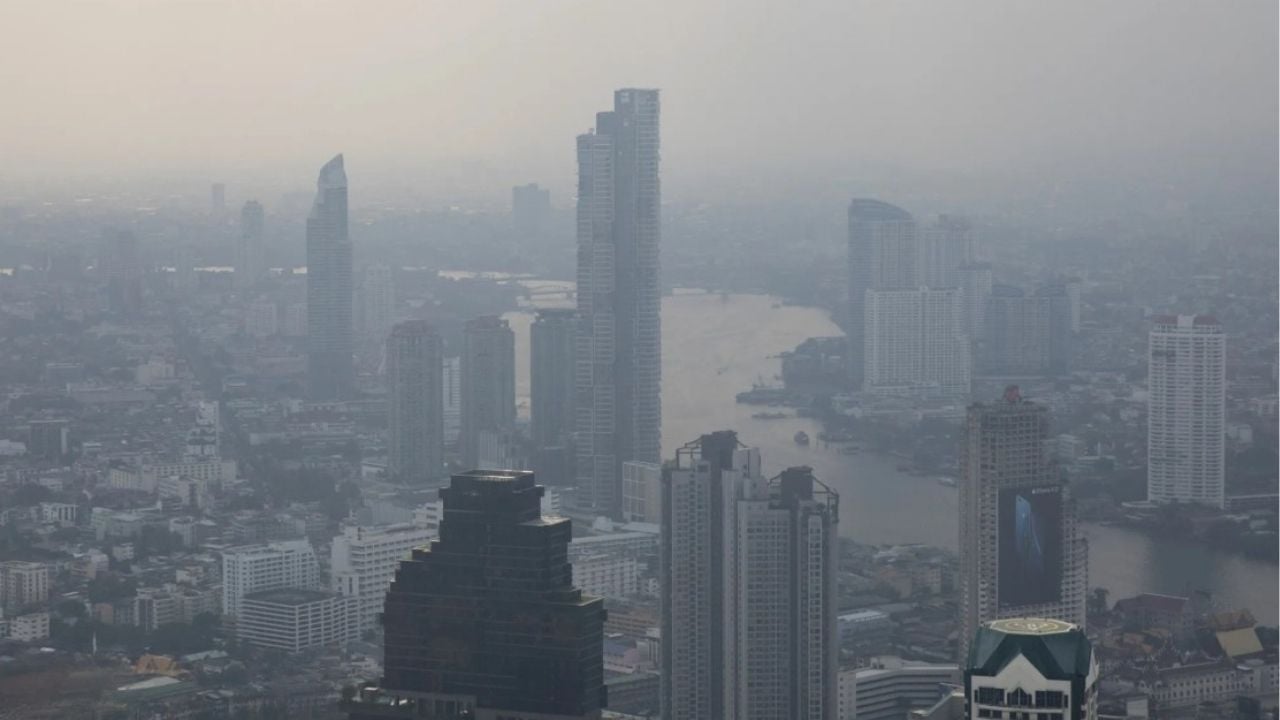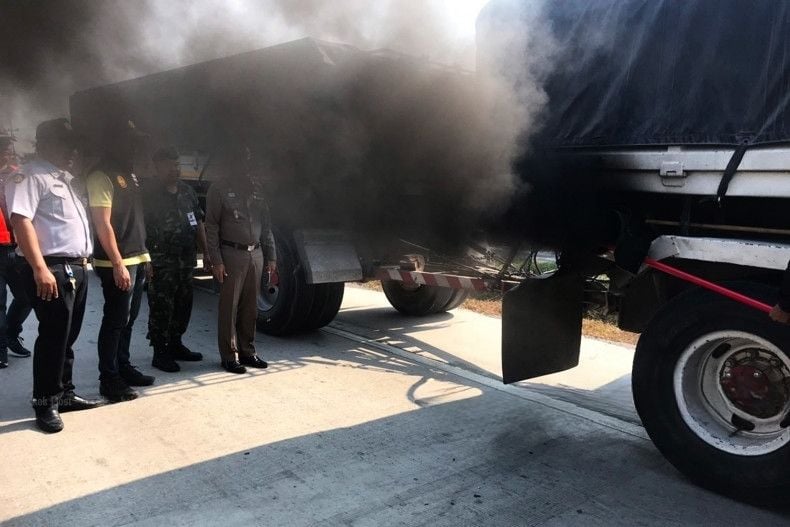AI and satellites join fight against Thailand’s toxic dust
New platform aims to predict pollution hotspots up to a week ahead

Thailand is turning to artificial intelligence and satellites in a high-tech push to predict and tackle deadly PM2.5 smog before it chokes the nation.
The Thailand Institute of Scientific and Technological Research (TISTR), the Pollution Control Department (PCD) and satellite operator Thaicom have signed a memorandum of understanding (MOU) to create an AI-driven platform for managing fine dust pollution.
The system will merge satellite imagery, weather data and machine learning to forecast PM2.5 hotspots up to seven days in advance. Officials say the platform will deliver nationwide risk maps through a web-based dashboard, helping officials act before conditions worsen.

Associate Professor Dr Weerachai Acharaporn, governor of TISTR, stressed that reliable forecasting is vital for protecting public health.
“This collaboration allows us to provide early warnings, enabling authorities to respond effectively and communities to better protect their health.”
PCD director-general Priyaporn Suwannakes added that the project represents a more systematic approach. She said advanced planning built on accurate data and inter-agency cooperation would improve air quality management.
Thaicom CEO Pathompob Suwansiri explained that satellite technology will be combined with AI modelling to boost forecasting accuracy.
“Satellite data provides a broader picture, and AI allows us to interpret it in ways that deliver actionable insights.”

The initiative will also integrate with the government’s Burn Check application, which regulates open burning activities: one of the biggest contributors to seasonal haze. By linking forecasts to the approval process, officials hope to curb agricultural burning before it worsens pollution levels.
Real-time monitoring of PM2.5 concentrations, temperature inversions, wind speed, and cloud density will also allow agencies to coordinate more targeted responses. This, officials say, marks an important step in using modern technology to tackle one of Thailand’s most persistent environmental and health challenges, reported Bangkok Post.
Air pollution, particularly PM2.5, is a recurring problem in Thailand, linked to thousands of premature deaths annually. With Bangkok and northern provinces often blanketed in hazardous smog, public pressure has grown for authorities to deliver more effective solutions.
Officials believe the partnership could transform how the country deals with toxic air, offering both prevention and rapid response.
Latest Thailand News
Follow The Thaiger on Google News:


























